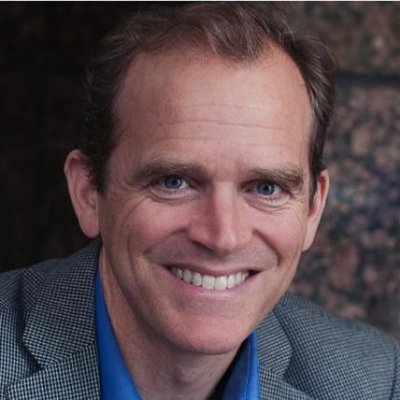hospitals
See the following -
First Teach No Harm
The U.S. spends $13 billion a year subsidizing graduate medical education. Yet almost all of this money winds up producing the wrong kinds of doctors in the wrong places, with America’s most elite teaching hospitals being the worst offenders. Read More »
- Login to post comments
Fitch: Meaningful Use Payments Masking 'Anemic' Revenue Growth
Although Meaningful Use payments will dry up when the incentive program ends, the benefits of electronic health records systems--including quality and efficiency gains--will mitigate the loss, according to global ratings agency Fitch. But the fact that the funds are non-recurring makes makes it tricky to predict the financial impact of EHRs. Read More »
- Login to post comments
Five Facts About Veterans’ Health Care
With more than 1,400 hospitals, nursing homes and clinics nationwide, the Department of Veterans Affairs operates the country’s largest health care system. On Veterans Day, here’s a look at how it operates, who it covers and what role it plays in the larger American health care system. Read More »
- Login to post comments
For Some Practices, EHRs Aren't Worth It
Looking to sell your medical practice? Don't waste time and money upgrading your IT. Read More »
- Login to post comments
GAO Follows The EHR Incentive Money Trail
A new report by the Government Accountability Office (GAO) shows the median Medicaid EHR incentive payment received by hospitals in 2011 was $613,512. Read More »
- Login to post comments
German Health System Adopts Open Source Matrix as Instant Communications Platform
 Gematik, the provider of digital solutions for the German health care system has chosen the open source Matrix protocol to underpin Germany’s new instant communication platform, which will be used by over 150.000 organisations, such as general practitioner offices, hospitals, and insurance organisations. The decision follows examples such as the German armed forces and France’s government adopting Matrix as the basis for their instant communication needs.
Gematik, the provider of digital solutions for the German health care system has chosen the open source Matrix protocol to underpin Germany’s new instant communication platform, which will be used by over 150.000 organisations, such as general practitioner offices, hospitals, and insurance organisations. The decision follows examples such as the German armed forces and France’s government adopting Matrix as the basis for their instant communication needs.
- Login to post comments
Germany's Healthcare System Is Using This Open Source Standard For Encrypted Instant Messaging
 A fast-growing open communication platform has been picked by the German healthcare system to support instant messaging between health professionals and organizations across the country. Called Matrix, the platform will provide German developers with the infrastructure, tools and protocols to build custom-made applications that will let up to 150,000 healthcare organizations securely share messages, data, images and files.
A fast-growing open communication platform has been picked by the German healthcare system to support instant messaging between health professionals and organizations across the country. Called Matrix, the platform will provide German developers with the infrastructure, tools and protocols to build custom-made applications that will let up to 150,000 healthcare organizations securely share messages, data, images and files.
- Login to post comments
Government Drops Big Data Bombshell On U.S. Hospital Industry
To be honest, I never thought we’d get much further than Steven Brill’s epic Time cover story – Bitter Pill: Why Medical Bills Are Killing Us. We had seen some of the data in bits and pieces over the years, and we knew that many Americans were driven to bankruptcy through medical expenses, but Steven gave us fresh insight into the personal devastation behind the sheer cost of care. Read More »
- Login to post comments
Halamka Summarizes the CMS Meaningful Use Final Rule
 I’ve been asked to summarize the 752 page CMS Meaningful Use Final Rule...Between the Notice of Proposed Rulemaking and the publication of the CMS Final Rule, the Medicare Access and CHIP Reauthorization Act of 2015 (MACRA) passed to include sunsetting the Meaningful Use payment adjustment for professionals at the end of 2018. Also, MACRA requires the establishment of a Merit-Based Incentive Payment System (MIPS) which would incorporate Meaningful Use. The comment period will be used in an attempt to align the Meaningful Use program and the MIPS program...Stage 3 is more controversial and I will focus on that.
I’ve been asked to summarize the 752 page CMS Meaningful Use Final Rule...Between the Notice of Proposed Rulemaking and the publication of the CMS Final Rule, the Medicare Access and CHIP Reauthorization Act of 2015 (MACRA) passed to include sunsetting the Meaningful Use payment adjustment for professionals at the end of 2018. Also, MACRA requires the establishment of a Merit-Based Incentive Payment System (MIPS) which would incorporate Meaningful Use. The comment period will be used in an attempt to align the Meaningful Use program and the MIPS program...Stage 3 is more controversial and I will focus on that.
- Login to post comments
Halamka: What Keeps Me Up At Night - Fall 2013
All of these challenges can be conquered. For nearly 20 years, I've led an IT organization that has continuously delivered miracles with 1.9% of the operating budget. I am ready for the challenges ahead but wonder if mergers/acquisitions, regulatory uncertainty, MU2 certification challenges, resource constraints, and real time demands will create a set of constraints that are impossible to optimize.
Read More »
- Login to post comments
HBR: Redefining The Patient Experience With Collaborative Care
It’s a common patient complaint about the people involved in their care: “Sometimes the left hand doesn’t seem to know what the right hand is doing. I don’t feel everyone is working together.” To address this issue, nurses at ThedaCare employed lean techniques to create a patient-centered, team-based model that’s producing solid results. Read More »
- Login to post comments
Healing Meals
Hospitals hope that sending healthful food to patients’ homes will keep them from coming back Read More »
- Login to post comments
Health 3.0: A Vision to Unbreak Healthcare
 Healthcare is broken. Few argue this point. Dr. Zubin Damania (aka “ZDoggMD”) is releasing an anthem to unbreak healthcare – it’s a parody of Eminem’s critically acclaimed Lose Yourself, with a call to build Health 3.0. ZDoggMD has become an Internet sensation with his musical parodies and characters such as Dr. House of Cards and Doc Vader approaching 100 million views on Facebook and YouTube. Many consider Lose Yourself to be one of the greatest hip hop songs of all time.
Healthcare is broken. Few argue this point. Dr. Zubin Damania (aka “ZDoggMD”) is releasing an anthem to unbreak healthcare – it’s a parody of Eminem’s critically acclaimed Lose Yourself, with a call to build Health 3.0. ZDoggMD has become an Internet sensation with his musical parodies and characters such as Dr. House of Cards and Doc Vader approaching 100 million views on Facebook and YouTube. Many consider Lose Yourself to be one of the greatest hip hop songs of all time.
- Login to post comments
Health Care M&A Spending Grows In Q2 2013, Compared With Q1 2013, According To Irving Levin Associates, Inc.
Health care merger and acquisition activity strengthened in the second quarter of 2013. Deal volume was up 10% versus the previous quarter, with 223 deals announced. However, the quarter underperformed (-15%) in comparison with the same quarter a year ago, according to The Health Care M&A Report. [...] Read More »
- Login to post comments
Health Care Systems Should Not Be Run For Profit, But Rather For People's Health
I wrote in a recent blog [...] that our health care system ”…is a parallel to our financial services industry: private enterprise is given a license to make money from everyone, and the government finances it. The only difference is that for financial services, the government steps in to bail them out only after they have already stolen all our money, while in health services the profit margin is built in from the start.” [...] Read More »
- Login to post comments